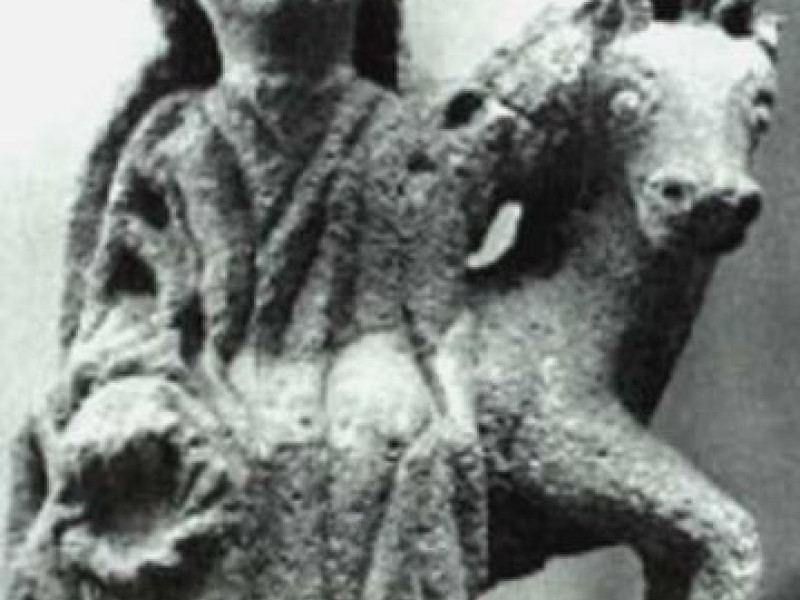Epona
Epona was the a Romano-Celtic goddess of horses. Epona was known throughout Continental Europe, particularly worshipped by the Gauls in France and Italy. Her cult would later spread to Britannia (Britain).
The Romans adopted the Gallic goddess as the patron-goddess of cavalrymen, and she was the only Celtic deity to be worshipped in Rome; an annual festival in Epona's honour was held on December 18. She could be found in art in both the Celtic and Roman world.
Epona was also called Bubona. In the Moselle valley, the name Eponabus indicated triple goddesses.
Epona was associated with the later Welsh horse-goddess Rhiannon and the Irish goddess Macha.
Statuettes usually depicted her riding a horse side-saddle, sometimes accompanied with a dog and bird.
By Jimmy Joe





